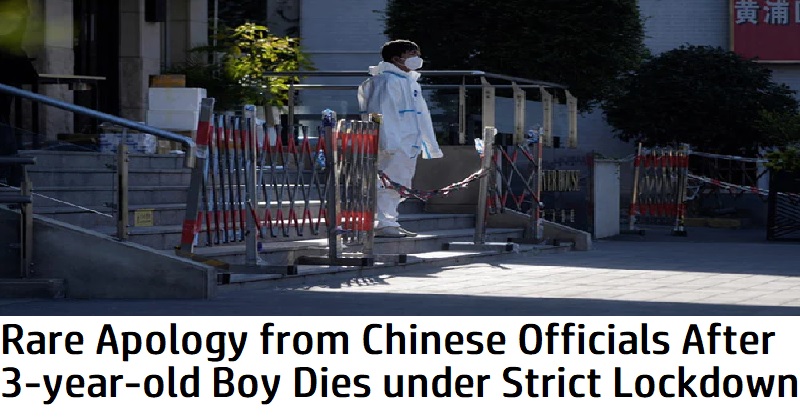
In a rare acknowledgment of guilt, Chinese local officials apologised on Thursday after a three-year-old boy died of carbon monoxide poisoning as a result of delayed medical attention brought on by a Covid lockout.
Due to China’s strict zero-Covid policy, which has forced millions of people to stay inside their homes and frequently hears complaints about poor living conditions, food shortages, and inadequate emergency response times, the city of Lanzhou in the country’s northwest has been under lockdown for nearly a month.
In a statement released on Tuesday, the local police had already verified a child’s death, but they omitted to mention any difficulties in getting medical care.
Videos of small-scale neighbourhood protests that evening quickly spread along with footage of individuals desperately performing CPR on a toddler while riding a flatbed tricycle the same day.
The boy’s father, whose last name is Tuo, complained on social media on Wednesday that he had been denied access to leave his housing complex by security personnel posted at a checkpoint and that an ambulance had not yet arrived when he needed it.
He claimed that his son was declared dead immediately after he was able to escape the compound and hail a taxi to a hospital more than an hour later.
District health officials posted a thorough summary of the occurrence on social media on Thursday and offered the boy’s family their ‘sincere sympathies’ in the process.
In their statement, they stated that they ‘sincerely welcome criticism and oversight from the media and netizens, and are motivated to rectify (mistakes).’
The boy’s father repeatedly called an emergency hotline, and the Lanzhou authorities acknowledged it took over 90 minutes to send an ambulance. They also acknowledged that lengthy interactions with staff occurred at the compound gate.
According to their statement, ‘This tragedy showed weaknesses in emergency response skills, obstructions in the emergency rescue process, and the rigidity of cadres’ work.’

Post Your Comments